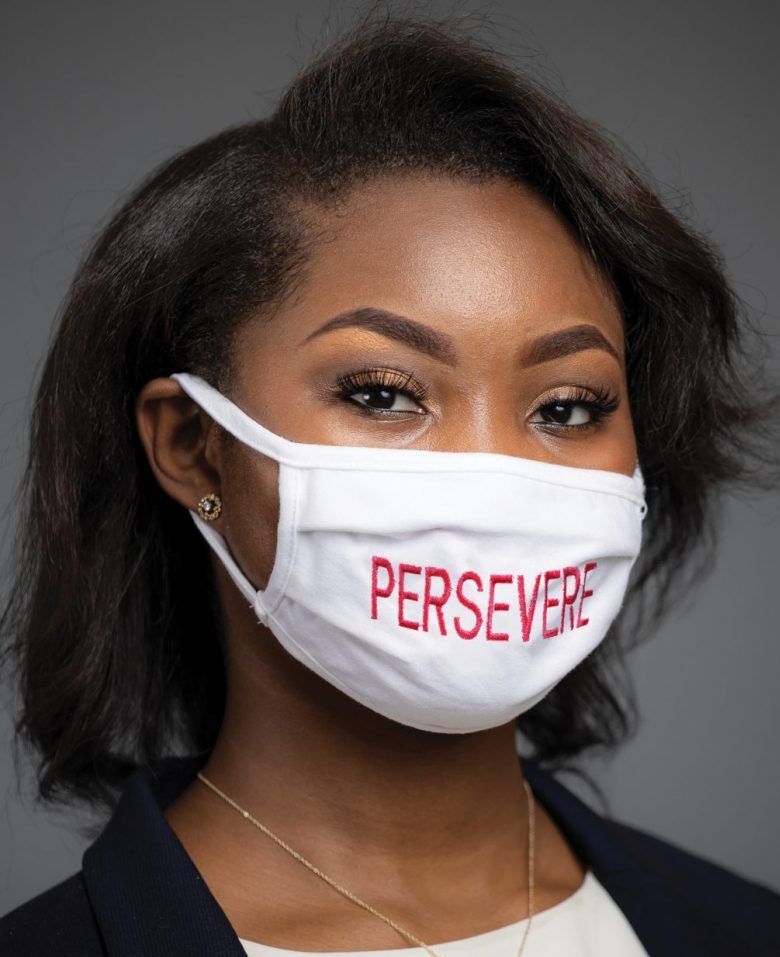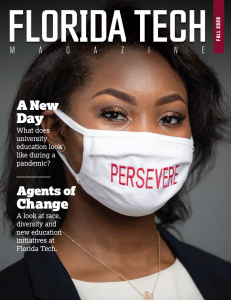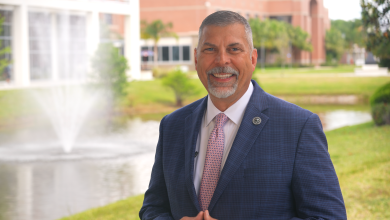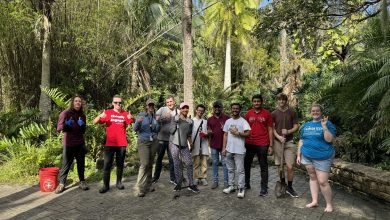Agents of Change
Addressing issues of racism and inclusivity through a new curriculum, new initiatives and open communication
May 25, 2020. Memorial Day.
A holiday that honors the men and women lost while serving the military would be, for this year and likely many to come, remembered for another loss—one that has echoed across the United States.
That Monday, George Floyd, an African American, was killed during an arrest after allegedly passing a counterfeit $20 bill in Minneapolis. A white police officer, Derek Chauvin, knelt on Floyd’s neck for 8 minutes and 46 seconds.
Floyd’s death, sadly, was not an outlier.
Two months prior, on March 13, Breonna Taylor, an African American emergency medical technician, was fatally shot by Louisville police officers after they executed a no-knock search warrant at her home, the wrong location. And two months before that, on Feb. 23, Ahmaud Arbery, a 25-year old African American, was fatally shot near Brunswick in Glynn County, Georgia, where he had been jogging in a neighborhood.
Though Arbery and Taylor’s deaths happened earlier, Floyd’s death was the catalyst for protests around the country, and conversations on race, diversity and equity have been reignited.
Florida Tech felt that spark.
It helped illuminate just how important education is for those who are carrying on those conversations now and who will someday soon be leading the charge forward into a changed society. And it spurred action that is reshaping what students will learn about the world around them.
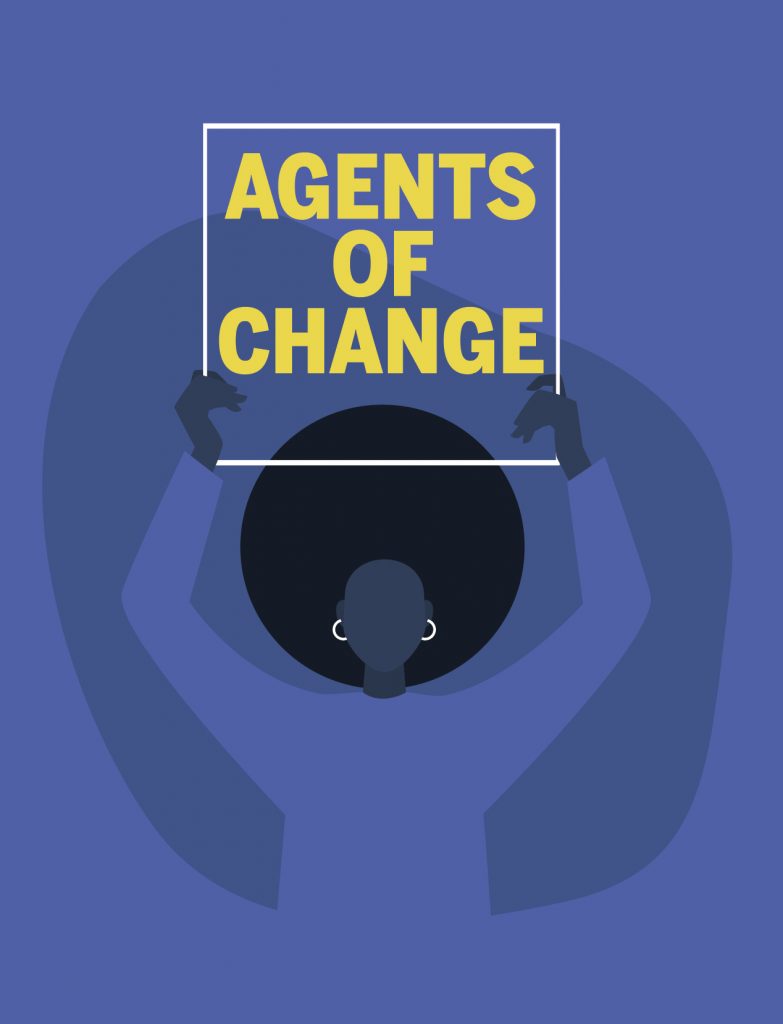
Building a Foundation
Since Furaha Merritt, a senior information systems major, came to Florida Tech from her hometown of Atlanta in 2016, the international diversity of the campus and the academic rigor of classes—things she looked for as she considered universities to attend—have provided a positive college experience. However, early on Furaha noticed the political climate created by certain events, such as the Ferguson, Missouri, protests over the police shooting of an African American man and the 2016 presidential election, was far different outside campus than on it.
“While you’re on campus, you don’t necessarily have to worry about too much. But when you step off campus to go to the grocery store, or you’re in the community, the mall or downtown, it’s back in your face again,” Furaha said. “It’s kind of hard to be detached from these things when you’re directly impacted by it.”
Furaha also noticed she was often the only Black person in her classes, and sometimes the only female. She heard of similar experiences from other African American students. While there were clubs such as the Caribbean Student Association and the African Student Association, Furaha and others felt the absence of something that showcased their particular culture and experiences.
Guided by that desire and the goal of creating an organization that fostered a sense of family and community, Furaha helped found Florida Tech’s first Black Student Union (BSU) in August 2017. The union has 60 members, and some of their work has included packaging meals for families around the world, reading to at-risk youth for Black History Month and mentoring youth through after-school programs.
Furaha’s plan for the BSU is to use its growing impact to enact longer-term goals that will outlast any individual union leader. That’s what led members to approach Florida Tech officials about creating an African American Studies major. The first step in that process has come to fruition: the launch of an African American Studies minor program anchored by a new class that debuted this fall, Modern African American Studies.
To Furaha, the course is an opportunity for students to learn more about Black history and better understand the systemic, long-established issues that continue to affect the nation.
“I think this education is very important because, at least at the very minimum, you can’t say you did not know. I think this course is going to fix the ‘Oh-I-did-not-know’ people,” she said. “After that, if they did not know and it strikes them, then they can take an educated stance and have some sympathy and empathy towards the right direction to actually help towards the fight, because we’re all going to have to fight to change the current systems.”
A New Curriculum
Modern African American Studies is offered by Florida Tech’s School of Arts and Communication in the College of Psychology and Liberal Arts. Don Harrell, an African studies scholar, ethnomusicologist, folklorist and musician, has been hired to teach the class.
The class, Harrell said, will examine the African presence in the Americas pre-enslavement, the trans-Atlantic slave trade, the Emancipation Proclamation and the civil rights movement, as well as more current developments. Through providing information and developing perspectives, Harrell hopes students will be able to make decisions on and better understand how they figure in today’s racial dynamics.
“Without the context or history, decisions for the future cannot be made,” Harrell said. “There’s a question of how much people don’t even know that they don’t know. There’s an old adage that a closed mind has no doors, and you can only really begin to teach, in earnest, when people are listening. What has occurred is a critical point in time in our contemporary society where the listening capacity has been blown wide open, so the process has begun of informing oneself and making decisions as to how you figure in the paradigm.”
Harrell noted the similarities between today’s time and the civil rights era of the 1960s and how both present the importance of young people’s role in the changes going forward. He sees an opportunity for students to take what they learn in the classroom out into the world.
“You’re trying to wake up the intellect and questioning and inquisitive mind and motivate folks to begin the process of gathering information that they can use successfully to make a positive difference in this society,” he said.
Without the context or history, decisions for the future cannot be made. There’s a question of how much people don’t even know that they don’t know. There’s an old adage that a closed mind has no doors, and you can only really begin to teach, in earnest, when people are listening. What has occurred is a critical point in time in our contemporary society where the listening capacity has been blown wide open, so the process has begun of informing oneself and making decisions as to how you figure in the paradigm.
Don Harrell, adjunct professor, College of Psychology and Liberal Arts
A Better Understanding
In January 2015, Jordin Chandler delivered the keynote address at the presentation of Florida Tech’s annual Pioneer Award, an honor named after Julius Montgomery, the school’s first African American student. Jordin, a Palm Bay High student at the time, spoke about the equitable progress made in society, while noting there was still much to be done. After Jordin’s speech, then-university President Anthony Catanese, in an unexpected gesture, offered Jordin a full-ride presidential scholarship to Florida Tech. Having grown up on University Boulevard near Florida Tech, Jordin was aware of the university’s caliber and academia. He accepted the surprise offer.
Jordin graduated in 2019 with a B.A. in humanities. Throughout his major, he studied aspects of civil rights, reconstruction and African American literature. His senior capstone project examined the desegregation and integration of Brevard Public Schools, focusing most closely on the former Stone High School (now Stone Middle School). His research found how incremental school desegregation and integration was in Brevard County.
Jordin’s educational experience taught him about African American studies that went beyond civil rights and slavery, and the alumnus looks at Florida Tech’s new class as a critical opportunity for students to develop a better understanding of these essential facets of American history.
“Tell us about Black Wall Street,” Jordin said. “Tell us about some of those pioneers and individuals that truly paved the way, such as the Morrill Land-Grant Acts that led to the creation of agricultural colleges, such as Florida A&M. That is an important part of our history and our essence and our being. Being able to educate other individuals on those topics is something that is very much needed in this present day and age.”
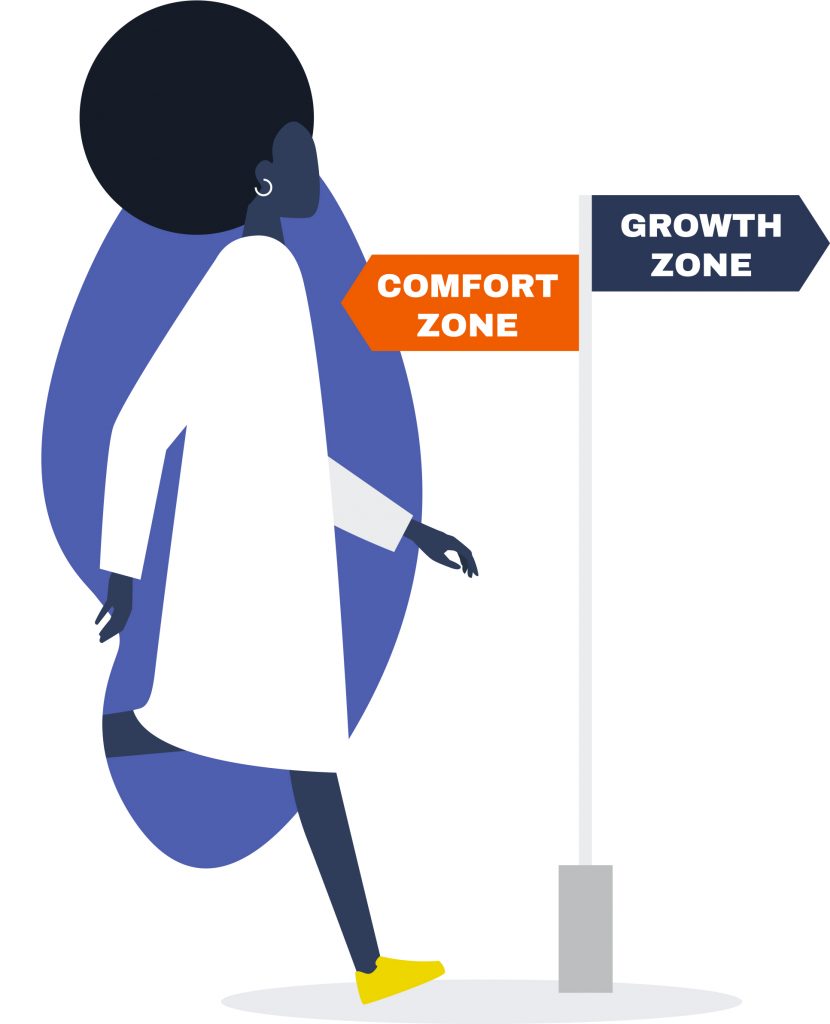
Working Toward a Better Future
As it gets developed, the African American Studies minor will have interdisciplinary courses aimed at studying and fostering further understanding of the social, political, economic and cultural forces that impact the lives of Black people in the U.S. and those in the Caribbean, Africa and around the world.
The program is also part of a broader array of initiatives Florida Tech is rolling out for the campus community. There will be new educational opportunities within the university’s First Year Experience and new diversity training for university employees.
In July, the university offered Let’s Talk: A Discussion of Race on Campus, led by President Dwayne McCay and moderated by attorney and community leader Kendall Moore. The meeting featured students and faculty sharing experiences on and off campus, as well as discussing what could be done to improve race relations on campus.
Going forward, Furaha and the Black Student Union would like to see a scholarship named after Julius Montgomery that could go to Black students. Furaha also noted she’d like to see more education on Montgomery, who paused his education and preserved Florida Tech (then called Brevard Engineering College) in 1958 by withdrawing so the school would not have to shut down under local school district regulations. Three years later, the school moved to a new property, and Montgomery re-enrolled.
“That’s how you bring history into play, and that’s how history isn’t just looked at as being so long ago,” Furaha said. “No, the school is only 60 years old. That’s relatively young compared to other universities.”
Furaha also wants to see Florida Tech more actively involved in the community and nearby schools, such as University Park Elementary and Stone Middle School. Jordin agrees. As part of wanting to see an overall investment in the minority communities along University Boulevard, he would like to see the university partner with those schools, which have large minority populations or a high volume of students on free or discounted lunch.
The efforts at Florida Tech represent a start, and students and alumni are eager to see the progress continue. Yet these initial steps are important, because they show the university is paying attention to those striving for change.
“Furaha has been phenomenal in ensuring this is something the university provides to those students to make African Americans and students in general feel like, ‘Hey, I have a voice,’” Jordin said. “So, the strides that (Florida Tech President) Dr. (Dwayne) McCay, and (Senior Vice President, Student Life & Alumni Affairs) Bino Campanini, (School of Arts and Communication head) Bob Taylor, and (Assistant Vice President, Honors College) Dr. (Lisa) Perdigao have taken show that not only do they listen, but they hear us.”
This story was featured in the fall 2020 edition of Florida Tech Magazine. Read the full issue here.

